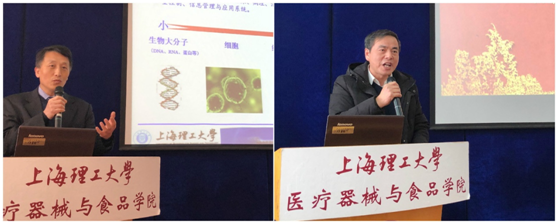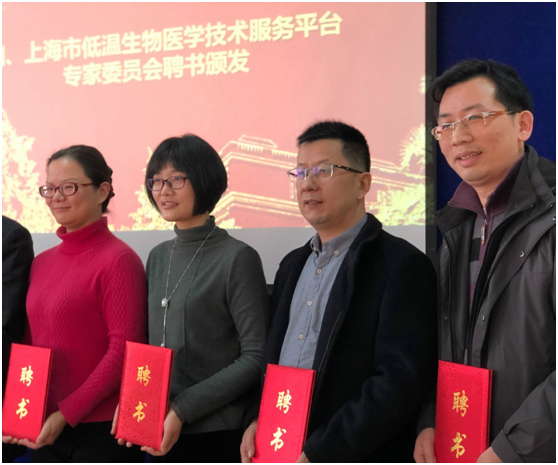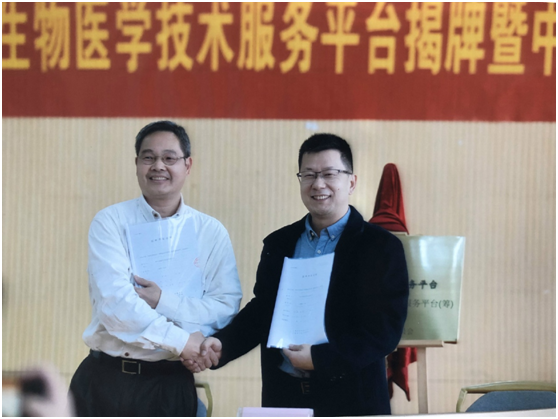
On December 28, 2018, Shanghai ushered in the coldest day since the beginning of winter, while the complex building of USST (University of Shanghai for Science and Technology) was filled with experts and warmth as the "Opening Ceremony of Shanghai Cryogenic Biomedical Technology Service Platform and Launching Ceremony of Incentive Fund for Training Cryogenic Biomedical Talents in China" was held here. Sheng Chun, Deputy Party Secretary and Vice President of USST, Sun Hua, Director of Shanghai R&D Public Service Platform Management Center, Jia Chunsheng, General Manager of Yinfeng Cryomedicine Technology Co., Ltd., Zhang Dawei, Director of Science and Technology Department of USST, Huang Hui, Party Secretary of School of Medical Instrument and Food Engineering of USST, Liu Baolin, Dean of School of Medical Instrument and Food Engineering of USST and experts from Shanghai Renji Hospital, Zhongshan Hospital affiliated to Fudan University, Shanghai Changzheng Hospital and Shanghai Cell Therapy Group attended the platform opening ceremony and launching ceremony.
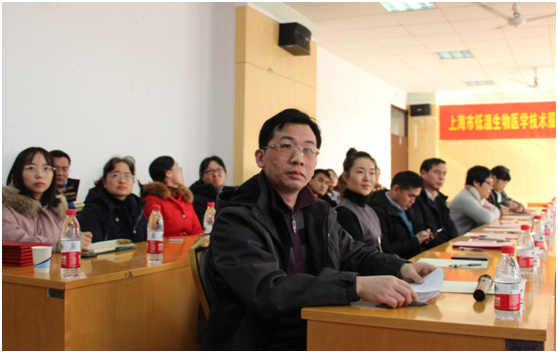
After more than three years of exchange visits and in-depth communication, Yinfeng Cryomedicine Technology Co., Ltd. (hereinafter referred to as "Yinfeng Cryomedicine") and USST - the most famous institution of higher education in the field of cryogenic biomedicine in China will work together to accelerate the industry-university-institute linkage development and industrial transformation, so as to promote the domestic cryogenic biomedicine to a higher level.
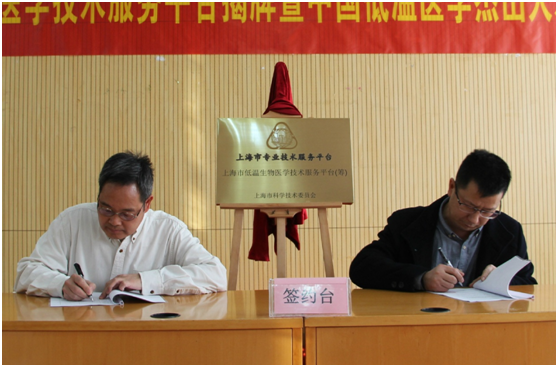
School of Medical Instrument and Food Engineering of USST has developed a first-class medical instrument and food engineering discipline in China based on the profound foundation of century-old USST. Its cryogenic biomedical engineering discipline has 34 years of history. Professor Hua Zezhao, who has established the Laboratory of Cryogenic Biomedicine, is the founder of domestic cryogenic biomedicine and has made outstanding contributions to the development of cryogenic biomedicine in China.
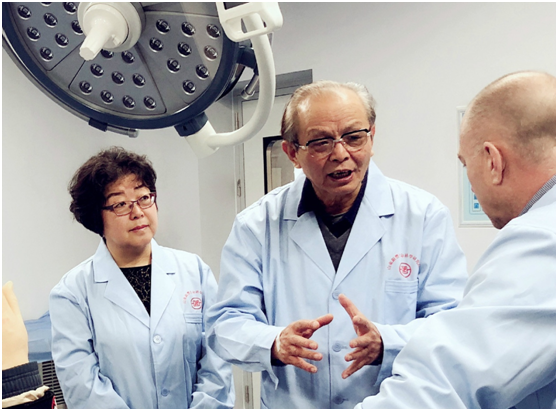
Yinfeng Cryomedicine cannot be established without another leading authority in domestic cryomedicine: Professor Shen Baijun, founder of Shandong Cord Blood Bank and former chairman of Shandong Provincial Cryomedicine Association. Professor Shen Baijun established the Cryomedicine Laboratory of Qilu Hospital in 1987 to carry out research and application on cryopreservation of umbilical cord blood, stem cells, skin, cornea and cardiac valves. In 1993, he set up the Shandong Cord Blood Bank. Through more than 20 years of development, Shandong Cord Blood Bank has become the largest hemopoietic stem cell preservation center in China. Realizing the preservation and recovery of more complex human tissues and organs for clinical transplantation has always been the intention of Professor Shen Baijun.
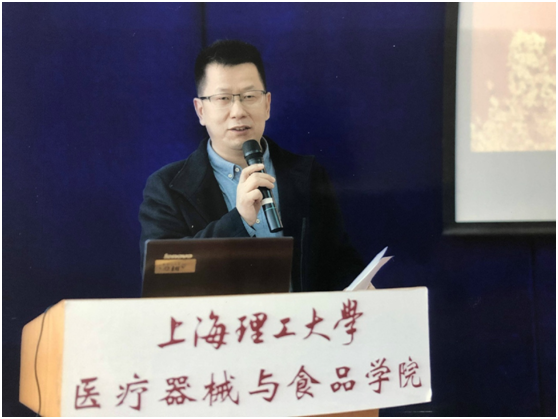
USST has an advanced discipline of cryogenic biomedicine created by Professor Hua Zezhao, and Shandong Yinfeng has experience in clinical application of cryomedicine exploited by Professor Shen Baijun. This is the origin and extension of cooperation between Yinfeng Cryomedicine and USST in the field of cryomedicine. In the past three years, the two sides have discussed extensively, made in-depth exchanges, paid exchange visits many times and reached a consensus. On August 9, 2018, the two sides signed an agreement on industry-university-institute cooperation in Jinan, Shandong Province.
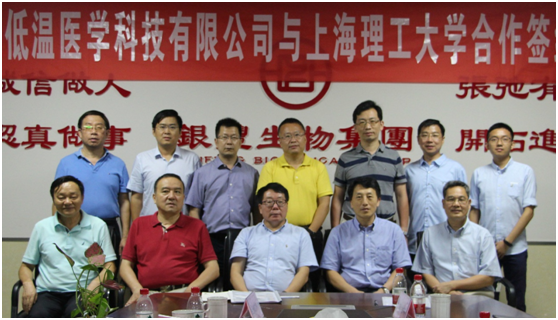
On December 28, Yinfeng Cryomedicine signed joint R&D agreements with experts of national “Recruitment Program of Global Experts" (the 10th batch) , and Professor Sun Wenquan and Professor Xu Yi from the School of Medical Instrument and Food Engineering of USST on tissue and organ preservation and human tissue and organ repair materials respectively, which will realize cross-regional and multi-disciplinary scientific and technological research, truly promote the industry-university-institute linkage development and industrial transformation, and accelerate the development and progress of cryogenic biomedicine, tissue engineering materials and other fields.
